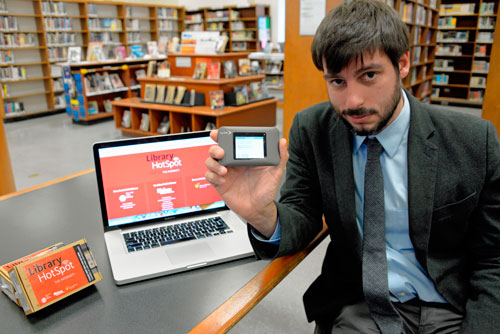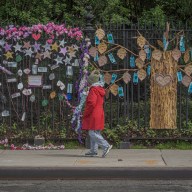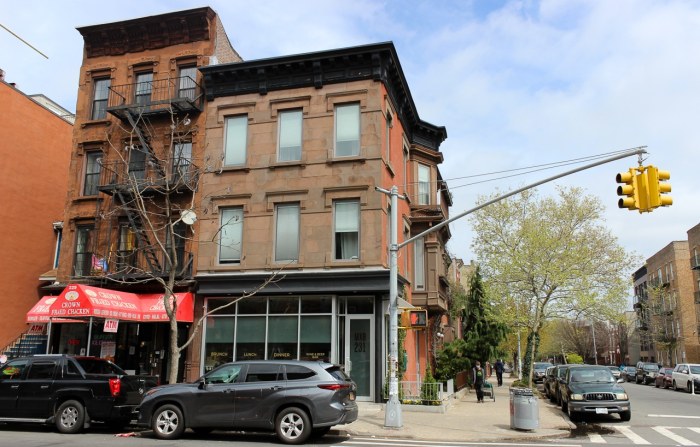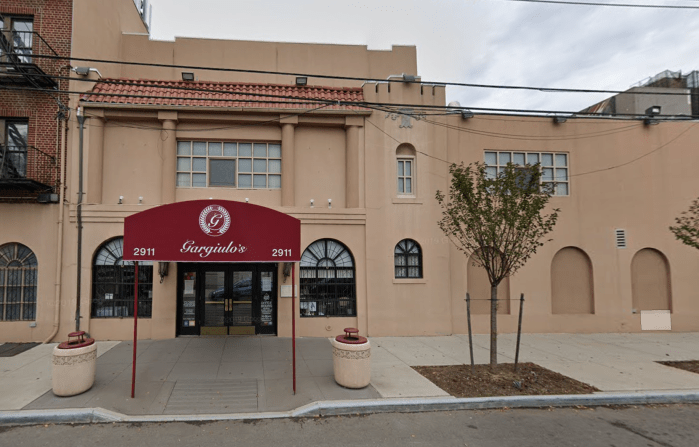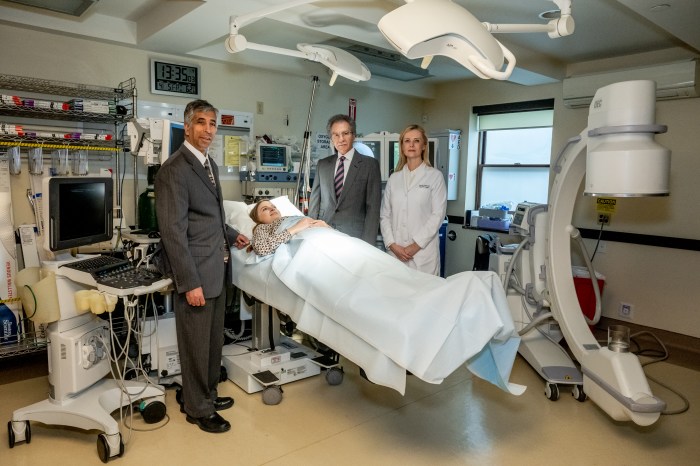The latest title on Brooklyn library shelves has a lot more to it than a John Grisham novel.
The Brooklyn Public Library is rolling out a new program this week that will let patrons check out portable wifi hotspots. A library staffer said the new tech tools have more in common with dead-tree publications than meets the eye.
“We are committed to supporting literacies of all kinds, including digital literacy,” said Jesse Montero, manager of information services for the library. “It’s all about access to information and about empowerment.”
The hotspots are part of a citywide initiative to distribute 10,000 over the next nine months, with funding from $2 million in donations from Google, the John S. and James L. Knight Foundation, and other organizations. Brooklyn will get 3,000 of the units and the borough’s librarians have started to dole them out at branches serving areas with low rates of home internet access. Those branches include Brownsville, Bushwick, DeKalb, Macon, Marcy, Saratoga, Stone Avenue, and Washington Irving.
“These locations serve communities that have a lot of need for technology access,” Montero said.
He added that these branches already offer more technology services than locations in other communities and that they are equipped with enough staff to run the new program.
The hotspots check out for a whole year, at which point they stop working and the library begins charging $1 per day in late fees. So far the program is only funded for a year, and the library isn’t saying under what circumstances it could continue.
“This is something new. It’s an innovative program and we’re going to see where it takes us,” Montero said.
The first 250 digital adopters will be from the library’s adult-education programs, which include English classes for non-native speakers and citizen-preparation courses.
“These individuals are invested in the library system,” he said. “And this program could really help them.”
After the first group, devices will be offered to anyone without a broadband connection at home. New users will have to attend a two-hour orientation at their branch to learn how to use the devices, and will have to sign an agreement saying they will not use the device for anything illegal and certifying that they do not have their own broadband connection at home. But in the same way that the library does not send its fines to collections, the agreements will largely be governed by the honor system.
“A lot of what we do in the libraries relies on trust already,” Montero said.
The service is being provided by Sprint and costs around $5 per month for each device. Every hotspot can support as many as nine connections.
The need for the initiative is definitely there, according to city data. A report issued last year by the comptroller’s office found that more than a quarter of New York households lack a broadband connection, a service Mayor DeBlasio says is essential.
“Whether you’re a parent looking for a job, a child working on a school project, or a family looking for information on services, broadband access is no longer a luxury,” he said in a statement. “It’s a necessity.”
Techno Files
The city updated its 311 app last week to allow users to report heat and water problems to the Department of Housing Preservation and Development from their cellphones. The upgrade also allows people to check on the status of a complaint they have already logged. New Yorkers made more than 200,000 heating complaints to the city last year and the app’s added functionality is meant to streamline the processing of those complaints.
• • •
New York University Polytechnic School of Engineering is hosting a talk on cyber security on Dec. 10. The discussion will focus on cyber-attack mechanisms, including the Stuxnet virus and distributed denial of service attacks. It will be led by Richard Danzig, a chairman of The Rand Corporation, a policy think-tank, and former secretary of the Navy. Joining him will be Stefan Savage, a researcher at the University of California San Diego, Andy Ozment, an assistant secretary in the Department of Homeland Security, and Ralph Langner, founder of a cyber-security consulting firm and first to call out Stuxnet as a U.S. attack on Iran’s nuclear program.



